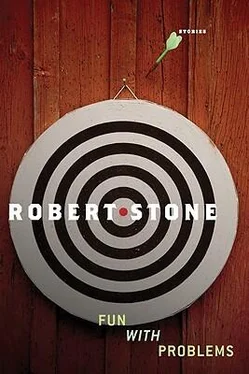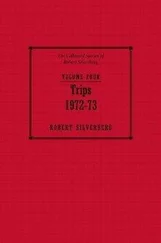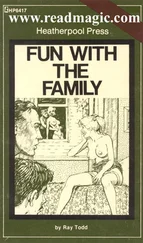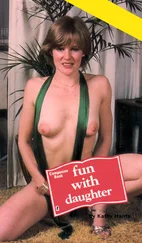The drive was an idyll, precisely defined, I was unsurprised to learn, as a happy episode, typically an idealized or unsustainable one. Down south that April afternoon there were still a few blossoming orange groves to mix memory and desire on the ocean breeze. Over the emerald cliffs people were hang-gliding, boys and alpha girls swooping like buzzards on the updrafts. In the sea below surfers were bobbing, pawing ahead of the rollers to catch the curl. And on the right, a gorgeous gilded — no, golden — dome displayed a sign that read, as I recall, SELF-REALIZATION GOLDEN WORLD FELLOWSHIP. It was the place the surfer kids called Yogi Beach, and there we overcame Lucy's peculiar grief and spent the happiest half day of our lives.
In Tijuana, which was as far as we got, we put the convertible in Caesar's protected parking and ate the good steak and the famous salad. We did not talk about Brion. For a while we traded recollections of Brooklyn College drama school, where, strangely, both of us had put in time.
It seemed, as the day lengthened, that the elations of our trip stirred a mutual yearning. Not about the night, because of course the night would be ours. I thought we might find our way through the dazzle of our confusions to something beyond. In my memory of that day — or in my fond dream of a memory — I was about to guide us there. In this waking dream I'm suspended at the edge of a gesture or the right words. All at once a glimmer of caution flickers, goes out, flashes again. Who was she, after all? An actor, above all. I was wary of how she brought out the performer in me. I mean the performer at the core, ready to follow her out on the wire where she lived her life. At that age I thought I might walk it too.
I could have been a moment short of giving her the sign she wanted, whatever it was. These days I sometimes imagine that with the right words, a touch, a look, I might have snatched her out of disaster's path, away from the oncoming life that was gathering ahead of her. I held back. Surely that was wise. The moment passed and then Lucy simply got distracted.
I let us drift down the colonnades of the farmacia tour at the busy end of Revolución, chasing green crosses and phosphorescence. I wanted a party too. Joy's hand, they say, is always at his lips bidding adieu. That melancholy truth drove us.
We crossed back to Yanquilandia without incident. On the drive up the freeway we talked about ourselves.
"You and me," Lucy asked. "What is that? "
I didn't know. I said it was a good thing.
"Where would it go?"
Not into the sunset, I thought. I said exactly that. Lucy was ripped. She chattered.
"Everything goes there," she told me.
I ought not to have been driving. I was stoned myself.
As Lucy talked on I kept changing the subject, or at least tweaking it.
"I have a kind of plan for my life," she said. "Part of it is career shit." She had picked up the contemporary habit of referring to people's film and stage work that way, including her own. As in "I want to get my shit up there." Or "I saw you in whatever it was and I loved your shit." It was thought to be unpretentious and hip, one social deviant to another. I particularly hated it, perhaps for pertinent but at the time unconscious reasons. "Actually," she went on with an embarrassed laugh, "artistic ambitions."
"Why not?"
Her fancies involved going east, to off-Broadway. Or working in Europe. Or doing something in one of the independent productions that were beginning to find distribution. Besides the artistic ambitions she entertained some secular schemes for earning lots of money in pictures. In retrospect, these were unrealistic. We found ourselves back on the subject of us.
"Don't you love me?" she asked.
"You know I do."
"I hope so. You're the only one who ever knew I was real."
I politely denied that, but I thought about it frequently thereafter.
"What about Brion?"
"Poor Brion was a phantom himself," she said.
"Really? He threw a pretty solid punch for a phantom."
"I wasn't there that time either," she said. "I hardly felt it."
As we passed the refinery lights of Long Beach, she shook her head as though she were trying to clear it of whispers.
"You know," she said, "as far as shadows and ghosts go, I fear my own."
"I understand," I said. Hearing her say it chilled me, but for some reason I did understand, thoroughly. I was coming to know her as well as was possible.
"Why do you always treat me with tea-party manners, Tom?"
"I don't. I don't even know what you mean."
"You're always trying to be funny."
I said that didn't mean I didn't love her. "It's all I know," I said.
We were driving along the margins of a tank farm that stood beside the freeway. Its barbed chain-link fence was lined with harsh prison-yard arc lights that lit our car interior as we passed and framed us in successive bursts of white glare. In my delusion, the light put me in mind of overbright motel corridors with stained walls tunneling through gnomish darkness. My head hurt. In the spattered white flashes I caught her watching me. I thought I could see the reflected arc lights in her eyes and the enlarged pupils almost covering their irises, black on black.
"Everybody loves you, Tom," she said. "Don't they?"
How sad and lonely that made me feel. Out of selfishness and need I grieved for myself. It passed.
"Yes, I'm sure everyone does. It's great."
"Do I count?" she asked.
Yes and no. But of course I didn't say that. In the twisted light I saw her out there sauntering toward a brass horizon and I wanted to follow after. But I was not so foolish nor had I the generosity of spirit. I was running out of heart.
"You more than anyone, Lucy," I said. "Only you, really."
That's how I remember it. As we drove on Lucy began to complain about a letter she said I'd written.
"You used these exquisite phrases. Avoiding the nitty-gritty. All fancy dancing."
"I don't do that. I don't know what letter you mean. Come on—'exquisite phrases'?" I laughed at her.
A couple of miles later she informed me she had written the letter to herself. "In your style," she said.
"So," I asked her, "what were the phrases you liked?"
"I don't remember. I wanted to get it down. The way you are."
"Lucy, please don't write letters from me to yourself. I can do it."
"You never wrote me," she said, which I guess was partly the point. "Anyone can jump out of a phone."
Suddenly, but without apparent spite, she declared, "John's going to expand my part." She was talking about the now revived horror movie in which John had hired a live British actor to strangle her. However, on consideration she thought he might transform her into a surviving heroine. I said it was great but that it probably wouldn't be as much fun.
"You know," she said, "you don't get credit for being scared and dying. It doesn't count as acting. Anyway, I can live without fun."
"If you say so."
"John," she said, "wants to marry me." For some reason, at that point she put her hand on my knee and turned her face to me. "Seriously."
I wondered about that in the weeks following. Once she showed me a postcard of the Empire State Building he had sent her from New York. He had adorned it with embarrassing jokey scribbles about his erection. One day I took John to Musso's for lunch but he said not a word to me about her. Over our pasta I asked him if it was true that he was sparing Lucy's character in the thing forthcoming.
"Oh," he said, as though it were something that had slipped his mind. "Absolutely. Lucy's time has come."
I suspected that the lead would be the kind of supposed-to-be-feisty female lately appearing as part of the serious and adult wave. I knew Lucy would deliver that one all the way from Avenida Revolución.
Читать дальше












